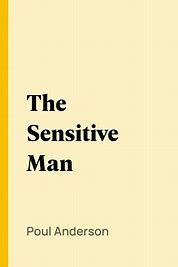Michael Tighe's kidnapper will be imprisoned.
"'Federal prison psychiatrists have Institute training,' [Casimir] murmured. 'You'll see that his personality is reshaped your way, won't you?'
"'As far as possible,' Simon said." (IX, p. 195)
"As far as possible" is all that can be managed. If Bancroft resists and refuses any retraining, reconditioning etc, then he will just have to be left as he is, although maybe imprisoned for longer.
Hypothetical beings knowledgeable and powerful enough not only to design and initiate a universe but also to control every single condition within that universe would be able to ensure that no one born in that universe would ever think of kidnapping, torturing or murdering a fellow being. The Psychotechnic Institute must settle for lesser goals but does aim to bring about a population of sane individuals within a sane set of social relationships. There will be a history and an eventual culmination.

13 comments:
Kaor, Paul!
No, what you said in your second paragraph. There can be no true freedom if there is no risk of failure or setbacks.
Ad astra! Sean
Sean,
In our finite experience, there would be a risk but an omnipotent, omniscient being would know the outcome of our actions and would be able to make them different. If I succumb to temptation through lack of will power, then I could have been given more will power or, alternatively, could have been made so that I was not tempted to act wrongly in the first place. I could have been a good person who always freely chose to act rightly because he was never motivated to act wrongly.
Paul.
Kaor, Paul!
And I continue to disagree, because that was not how God chose to act.
Ad astra! Sean
Sean,
But I do not see how a being with a finite intellect and will can possibly have free will in relation to an omniscient, omnipotent creator. We have free will in one sense because, when I am offered a choice between a ham omelette and a mushroom omelette and I choose mushroom because I am vegetarian, I am conscious that no one and nothing external to myself prevented me from choosing ham so I was free. But my choice was determined by my preferences, including my vegetarianism. A creator has full control over all the factors that make me this person with these preferences.
Paul.
Kaor, Paul!
Because God does not compel our choice, good or bad. Foreknowledge is not the same as compulsion. I can have foreknowledge of a plot by robbers to raid a bank--but something might prevent me from warning the police. My foreknowledge is not forcing the thieves to rob that bank.
Ad astra! Sean
Sean,
I know foreknowledge is not compulsion. We have discussed this before. Many factors made me who and what I am. An omnipotent creator could have made those factors different. That is not saying that mere foreknowledge is compulsion.
I know that God does not externally compel like a human dictator. But he has full control over all the factors that make us the people who make the choices that we do.
Paul.
An aggressive drunk automatically kicks a dog that bites him. A Gandhian pacifist who lives his beliefs does not. Both act freely. God could have made either of those men very different.
From Sean M. Brooks:
Kaor, Paul!
Then only a clarifying of views is possible. I believe God gives us the freedom to make of our lives what we can or will, wisely or foolishly.
Ad astra! Sean
Sean,
If monotheism is true, then God does create people who choose but, as the omnipotent (not just omniscient) creator, he has complete control over every single factor that brings about our choices.
Am I tempted to drink too much? He could have made me a person who only wanted a few drinks and no more or, if I was tempted, could have given me enough will power to resist the temptation.
The Old Testament God wants to demonstrate his power so he makes Pharaoh refuse Moses so that God can then send the plagues. That is explicit in the texts.
Paul.
Kaor, Paul!
No, this is how Haydock commented on Pharaoh's "hardening" of his heart in Exodus 4.21: " 'I shall harden, etc.': not by being the efficient cause of his sin, but by withdrawing from him, as a just punishment, the grace that might have softened his heart: and so permitting to grow harder and harder."
It was Pharaoh's self willed and self chosen obstinacy in refusing the demands of Moses which brought on these increasingly severe plagues. It was because of the choices made by Pharaoh.
Ad astra! Sean
Sean,
I still think that an omnipotent creator controls all the factors that lead up to a choice, could have made those factors different and therefore could have made the choice different. Indeed, that interpretation of Exodus shows God doing that.
Paul.
Kaor, Paul!
Then we are going to have to agree to disagree.
Ad astra! Sean
Sean,
Well, of course we disagree! I do not think that agreement is ever the aim or the expectation.
Paul.
Post a Comment